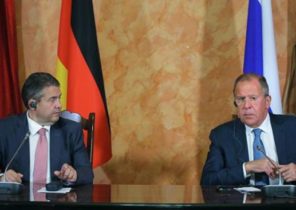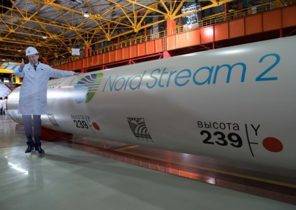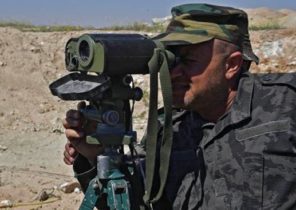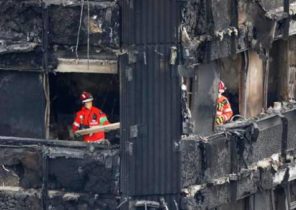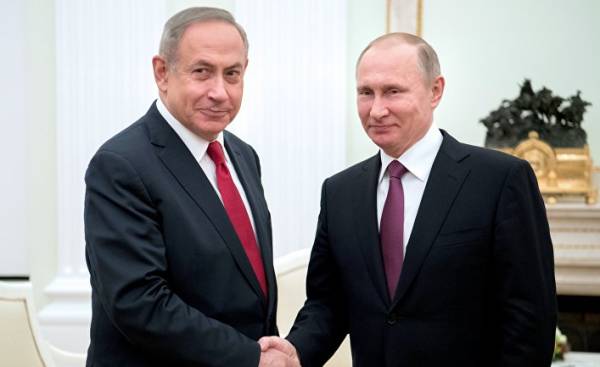
Black fur hat looked at the Libyan General strange. But fur in winter Moscow is no surprise. The Russian capital has become an important point for visits of the leaders of the countries of the Middle East — such as Khalifa Haftar (Khalifa Haftar), the General commander of the national army of Libya, who twice came here on a visit in 2016. His enemy Faiz Sarraj (Fayez al-Sarraj), the head of the government of Massoglia in Tripoli, supported by the United Nations, went to Moscow this March. The king of Jordan Abdullah II Ibn Hussein (Abdullah II ibn Al-Hussein), the President of Turkey Recep Tayyip Erdogan (Recep Tayyip Erdogan) and Prime Minister Benjamin Netanyahu (Binyamin Netanyahu) — they all came this year to the Kremlin to meet Vladimir Putin.
These visits — a sign that Russia is becoming more active in the middle East. “Russia’s policy is much broader than just Syria”, — says Andrey Kortunov, Director General, Russian international Affairs Council. Russia’s interests in this region include the issues of security, transactions for the sale of weapons and oil. But above all the middle East helps strengthen the global status of Russia. “Occupying a strong position in the middle East will occupy a strong position in the whole world,” says Fyodor Lukyanov, Chairman of Presidium of the Council on foreign and defense policy, an Advisory body to the government.
Important role in Syria has helped Russia to develop relations with different Nations and forces. Moscow seeks to maintain contacts with both Sunnis and Shiites, and representatives of the Arab and Israeli world. Fighting in Syria, along with Iran, Mr. Putin signed an agreement on the stabilization of oil prices with Saudi Arabia. He also reached harmony in dialogue with the President of Egypt, has restored relations with the President of Turkey after the story of the downed aircraft in the skies over Syria and established friendly contacts with the Israeli Prime Minister, and insisted to play a more active role in resolving the Israeli-Palestinian conflict. “They bend over backwards to communicate with all the way are not talking to Americans,” says mark Katz (Mark Katz) from George Mason University.
Russia cooperates with traditional American allies. The people’s protection units Syria, supported by the United States, said recently that Russia has created the basis to help their soldiers in training. In the past year Russia has attracted investments of Qatar in Rosneft, the state oil giant, and UAE promised to buy a few jet fighters, designed by Sukhoi design Bureau. “Like it or not, but now without Russia in the middle East nothing can be done,” says a Western diplomat.
Western governments are particularly concerned about Libya, where Russia may help Mr. Haftarot, secular charismatic leader who has the liking of Vladimir Putin. American officials claiming that the elite units of the foreign intelligence service of Russia was seen near the town of Sidi Barrani in Egypt near the Libyan border. Russian officials deny this information. Russian officials under contract reported that they perform tasks on the territory controlled by the Lord of the Haftarot. Rosneft signed a Memorandum of cooperation with Libya’s National oil Corporation.
Russia insists that its agreement with Mr. Haftarot intended exclusively for peaceful purposes. The power of the Lord of the Haftarot have great potential and can influence the course of events, says Andrey Baklanov, the Chairman of the Board of the Association of Russian diplomats. However, many Western officials behave quite carefully.
Russia’s ability to act in the region is highly dependent on the degree of influence from the United States. The leaders of the Middle East are willing to invest their capital in various projects. “This region knows how to push power to each other,” says Daniel kurtzer (Daniel Kurtzer), former U.S. Ambassador to Israel and Egypt. However, Russia’s aims are limited. Vitaly Naumkin, Director of RAS Institute for Oriental studies, believes that the country does not have “neither the desire nor the resources” to become the new leader of the region. According to one former Russian Ambassador, “we are realists, we can compare indicators”.
Russia’s economy is one-tenth of the American; when translated into dollars the expenses on defense amount to 11% of US spending on defense. In comparison with Soviet times, Russia today does not promote an alternative system of governance. On the contrary, it seeks stability. “Russia’s position is that maintaining what now exists is the only way to avoid chaos, says Lukyanov. Even if existing leaders are cannibals, murderers or despots”.
The emphasis of Moscow on the maintenance of stability partly due to the threat of terrorism to Russia itself. “Russia views the middle East as a territory that is next”, — says Dmitry Trenin, Director of the Carnegie Moscow Center. From Sochi, a favorite place for holiday of the Russian elite, to Aleppo 850 kilometers — approximately as from Paris to Berlin. According to officials, 9 thousand soldiers left Russia and former Soviet republics to join the ranks of ISIS (a terrorist organization banned in Russia — approx. TRANS.).
The attention of Russia caused by the collapse of the Western “policy of regime change.” When the power of the dictators the Arab spring began to wane, Russia’s interest in the region has resumed after a long period of post-Soviet lull. Official representatives of Russia considered the protests in the Arab world, the color revolutions in the former Soviet republics and demonstration on Bolotnaya square in Moscow in 2011-2012, as the chain of events caused by the influence of America. For Mr Putin’s decision to intervene in support of the regime of Bashar al-Assad (Bashar al-Assad) in 2015 partly was “to stop the spread of the virus of the Arab spring”, and was supposed to help “to return to an equal relationship with the Americans” after the isolation of Russia in connection with crisis in Ukraine, Trenin believes.
A harsh series of bombings helped to achieve this. But while Russia’s obligations became more and more serious challenges were becoming greater. Despite the success on the battlefield in Syria, “there is no solution to the crisis in the foreseeable future” — says Alexander Shumilin, Director of the Center for analysis of middle East conflicts of the Institute of USA and Canada. Israel is very concerned about the long-term presence of Iran in Syria. The talks on the political future of Syria progressed very insecure, and after the end of hostilities, will have to pay the bills for the damage.
Peace, as it has learned America costs much more than winning the war.
